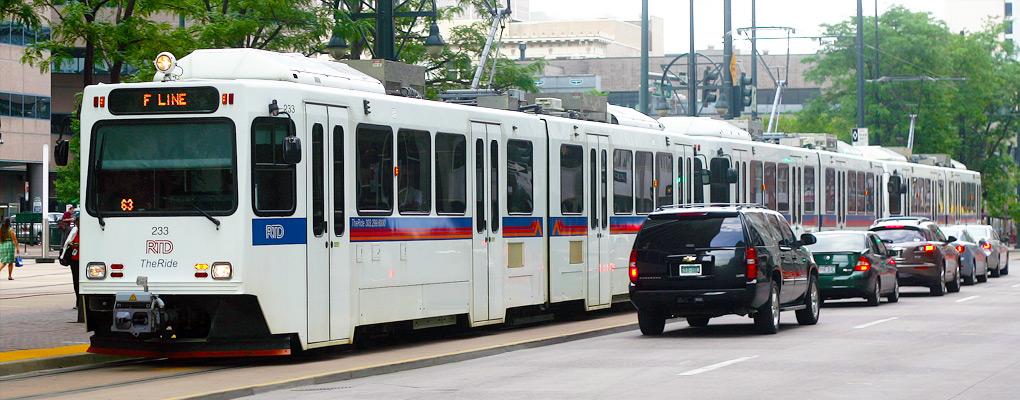Transit Planning

Transit planning is essential to how people move around our region today. As our region continues to grow, so will the reliance on our transit system, which benefits us all. Public transportation reduces congestion, improves mobility and improves air quality for everyone. DRCOG is key in ensuring transit is available to persons of all ages, incomes, and abilities.
Planning and Coordination
The Coordinated Transit Plan establishes a framework for coordination between transit agencies, human service agencies, member governments and other associated transportation providers. The plan guides how these unique entities can work together to improve regional mobility, increase transit access and lower transportation costs in the DRCOG region. The Coordinated Transit Plan identifies strategies to address the transportation needs of our region’s older adults and individuals with disabilities. It emphasizes our region’s integrated approach to coordinating fixed-route and human-service transit services. The Coordinated Transit Plan addresses several federal requirements set forth by the Federal Transit Administration, including:
-
An assessment of available services that identifies current transportation providers (public, private and nonprofit)
-
An assessment of transportation needs for individuals with disabilities and older adults (based on the experiences and perceptions of the planning partners or sophisticated data collection efforts and an analysis of gaps in service)
-
Strategies, activities or projects to address the identified gaps between current services and needs and opportunities to achieve efficiency in service delivery
Priorities for implementation are based on resources, time and feasibility for implementing identified strategies and activities.
Coordinating Partners
DRCOG works with the Denver Regional Mobility and Access Council to improve human service transportation coordination. DRCOG, the Denver Regional Mobility and Access Council, the Regional Transportation District, the Colorado Department of Transportation and other stakeholders collaborate in the planning, development and implementation of coordination strategies in the Coordinated Transit Plan.
Human service transportation includes specialized services for older adults and individuals with disabilities. It can also include services for low-income people offered in areas with limited or no fixed route services.
The Regional Transportation District rapid transit projects, including FasTracks, receive approval from DRCOG for their financial plans and vehicle technology. DRCOG requires a FasTracks Plan Change Report when the Regional Transportation District proposes changes from the most recent DRCOG-approved FasTracks Plan. Please review the following reports.
Human Service Transportation
Enhanced Mobility of Seniors & Individuals with Disabilities (Section 5310)
Section 5310 provides formula funding to states from the Federal Transit Administration to assist private nonprofit groups in meeting the transportation needs of older adults and people with disabilities when the transportation service provided is unavailable, insufficient or inappropriate to meet these needs. DRCOG oversees the administration of these funds for the Denver-Aurora Urbanized Area. For further details, read the DRCOG 5310 Program Management Plan.
DRCOG Human Service Transportation Set-Aside
In 2018, DRCOG adopted a set-aside of $4 million over four years for Human Service Transportation as part of the fiscal year 2020-2023 Transportation Improvement Policy. The Human Services Transportation set-aside provides a dedicated funding source to improve mobility for vulnerable populations, including older adults, low-income individuals, veterans and individuals with disabilities.
This set-aside complements Federal Transit Administration 5310 Enhanced Mobility of Seniors and Individuals with Disabilities and Older Americans Act and Older Coloradans Act dollars by funding identified needs that are underfunded or underserved by those sources.
